Follow Our Sellers Checklist To Stay Safe While Selling Your Home
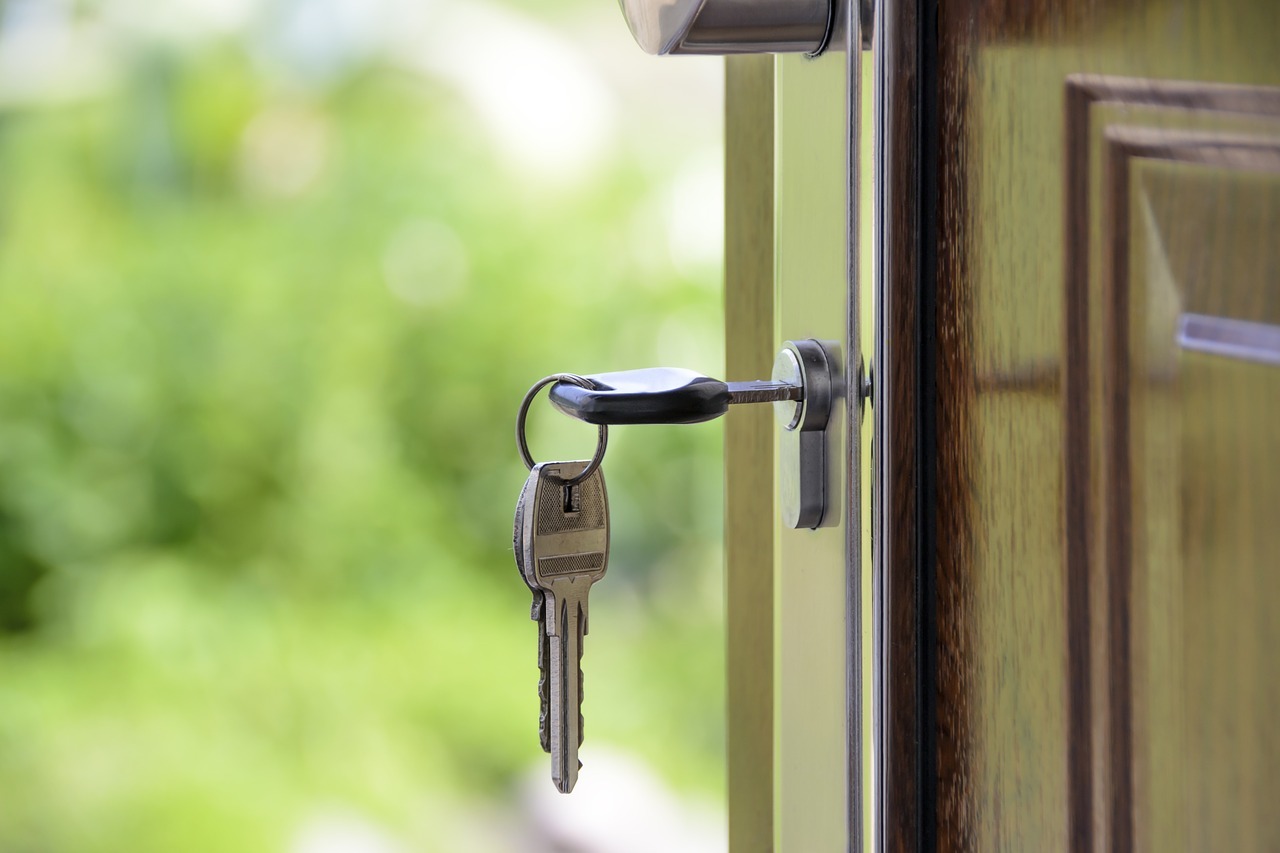

Staying organized while uprooting your life and moving from one home to another can feel impossible. Not only are you trying to get the best financial return on your investment, but you might also be working on a tight deadline. There’s also the pressure to keep your home clean and organized at all times for prospective buyers. However, one thing you can be sure of when selling your home is that there will be strangers entering your space, so it’s important for you and your agent to take certain safety precautions. Like so many things in life, they can feel more manageable once written down, so we made this handy checklist.
- Go through your medicine cabinets and remove all prescription medications.
- Remove or lock up precious belongings and personal information. You will want to store your jewelry, family heirlooms, and personal/financial information in a secure location to keep them from getting misplaced or stolen.
- Remove family photos. We recommend removing your family photos during the staging process so potential buyers can see themselves living in the home. It’s also a good way to protect your privacy.
- Check your windows and doors for secure closings before and after showings. If someone is looking to get back into your home following a showing or an open house, they will look for weak locks or they might unlock a window or door.
- Consider extra security measures such as an alarm system or other monitoring tools like cameras.
- Don’t show your own home! If someone you don’t know walks up to your home asking for a showing, don’t let them in. You want to have an agent present to show your home at all times. Agents should have screening precautions to keep you and them safe from potential danger.
Talk to your agent about the following safety precautions:
- Do a walk-through with your agent to make sure you have identified everything that needs to be removed or secured, such as medications, belongings, and photos.
- Go over your agent’s screening process:
- Phone screening prior to showing the home
- Process for identifying and qualifying buyers for showings
- Their personal safety during showings and open houses
- Lockboxes to secure your keys for showings should be up to date. Electronic lockboxes actually track who has had access to your home.
- Work with your agent on an open house checklist:
- Do they collect contact information of everyone entering the home?
- Do they work with a partner to ensure their personal safety?
- Go through your home’s entrances and exits and share important household information so your agent can advise how to secure your property while it’s on the market.
Staying Safe When Selling Your Home
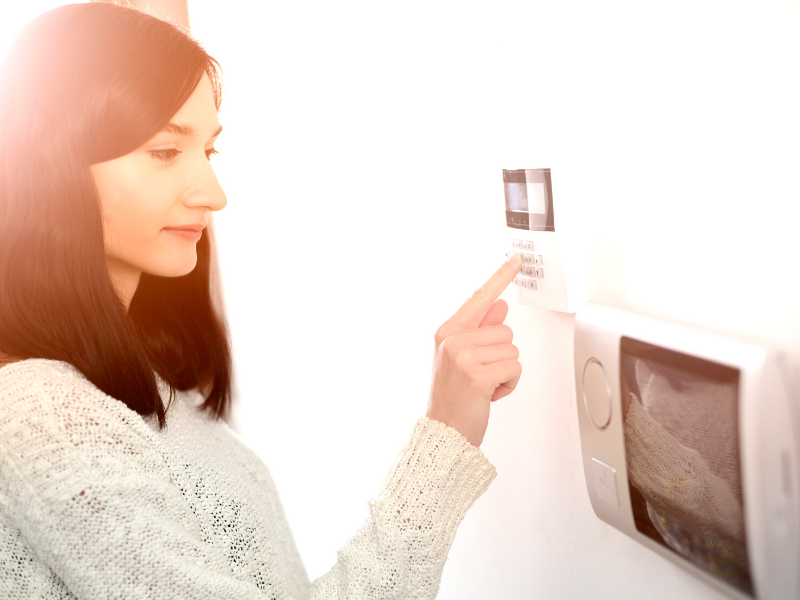

Image Source: Canva
Staying organized while uprooting your life and moving from one home to another can feel impossible. There’s also the pressure to keep your home clean and tidy for showings to prospective buyers, but your personal safety is an important consideration as well.
When selling your home, there will be strangers entering your space, so it’s important for you and your agent to take certain safety precautions. Like so many things in life, they can feel more manageable once written down, so we made this handy checklist.
Prepare your home:
- Go through your medicine cabinets and remove all prescription medications.
- Remove or lock up precious belongings and personal information. You will want to store your jewelry, family heirlooms, and personal/financial information in a secure location to keep them from getting misplaced or stolen.
- Remove family photos. We recommend removing your family photos during the staging process so potential buyers can see themselves living in the home. It’s also a good way to protect your privacy.
- Check that your windows and doors are secure before and after showings. If someone is looking to get back into your home following a showing or an open house, they will look for weak locks or they might unlock a window or door.
- Consider extra security measures such as an alarm system or other monitoring tools like cameras.
- Don’t show your own home! If someone you don’t know walks up to your home asking for a showing, don’t let them in. You always want to have an agent present to show your home.
Talk to your agent about the following safety precautions:
- Do a walk-through with your agent to make sure you have identified everything that needs to be removed or secured, such as medications, belongings, and photos.
- Go over your agent’s screening process so you are both on the same page about phone screening, and how to qualify buyers before showings, as well as personal safety tactics during showings and open houses.
- Lockboxes to secure your keys for showings should be up to date. Electronic lockboxes track who has had access to your home.
- Go through your home’s entrances and exits and share important household information so your agent can advise how to secure your property while it’s on the market.
Home Security for the Holidays
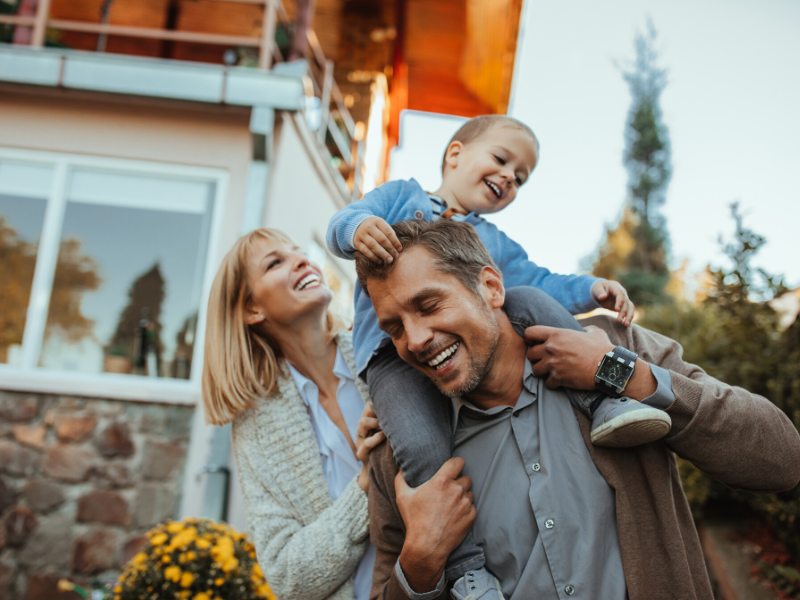

The holiday season can bring joy and peace, but it can also bring package thieves and burglary. Stay safe this winter by taking a few precautions with your home security. From old-school security tricks to new digital home monitoring tools, there are many options when it comes to keeping our homes safe and preserving that sensibility.
Upgrade your locks:
A poorly installed deadbolt can make it easy for an intruder to kick in your door. Start by making sure that your door frames are in good condition and then look into getting a higher quality deadbolt. You’ll find everything from classic models with keys, or digital options that require passcodes or a fingerprint.
It’s also a good idea to check all the locks on your windows. Some older models are easy to jimmy open with a little wiggling. For ground floor windows, you may want to consider double locks. It goes without saying, leaving windows open during the summer is a bad idea – especially those that can be easily accessed.
Exterior and interior home lighting:
Having your exterior lights on timers or motion sensors is a good way to deter nighttime snoopers. Add sensor lights to key entry points on your home, including the front door, back door, and/or basement entries. If you have an unused side yard, consider lighting there too. Keeping your home lit makes unwanted visitors weary of being seen.
If you will be gone from your home for an extended period, consider using timed lighting options in your home to make it appear someone is around. You can select timers for bedrooms or living areas. Also, you can program a radio to turn on and off for sound.
Alarm systems:
If you are considering an alarm, you have an array of options that vary from self-install motion detection kits to full-service home security systems. If you choose to do-it-yourself, you will want to install motion detectors on doors and windows – especially those that can be easily accessed on the ground floor. In most cases, these kits also offer a 24-hour call service for an extra fee.
Full-service security systems can include everything from an alarm system and panic buttons to and integration with your smoke detectors/ fire prevention system. These services are expensive up front but usually have a reasonable monthly rate. And keep in mind, having a home security system installed can also reduce your insurance rates.
If installing an alarm system is cost-prohibitive or does not fit your lifestyle, consider purchasing stickers and a sign that state that your home is monitored by a trusted security system, and place them so they are visible at every entrance.
Security cameras:
Security cameras are readily available for home installation. You can install these in prominently viewed places to deter burglars. There are do-it-yourself install options and professional systems that come along with monitoring services. There are even options that will work with your smartphone.
If the cost of security cameras is too steep for your budget, you can purchase fake cameras to act as a visible deterrent for intruders.
Build your community:
Programs like Neighborhood Watch are very successful in some communities, by creating an environment where everyone is looking out for each other. Building close-knit relationships with your neighbors can go a long way in making you feel safe at home. Whether this is through a formalized program, or a shared agreement with your community, developing relationships with your neighbors is a great way to keep your home safe.
Childproofing: Protect Your Family and Your Home from Potential Hazards
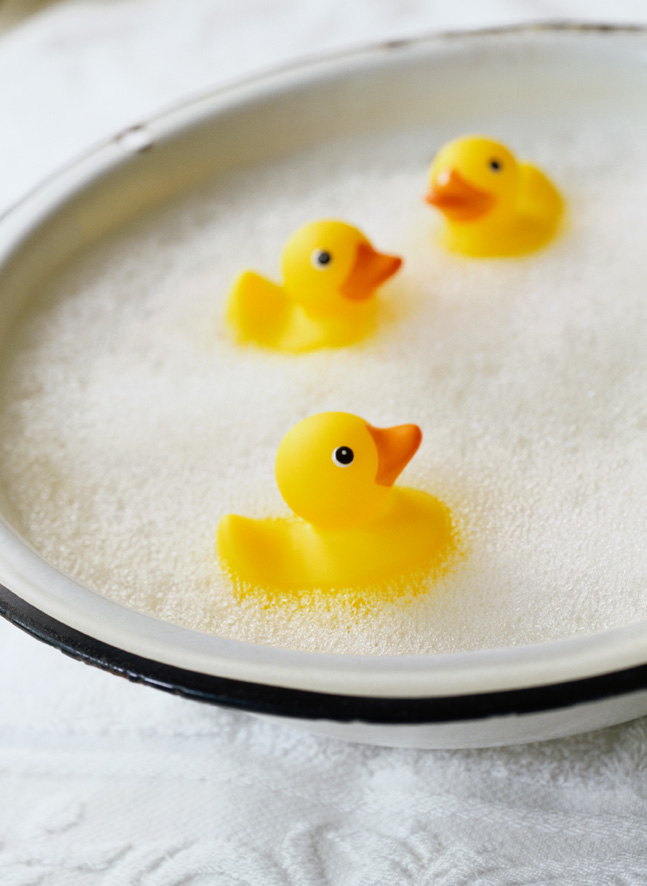
 When you think of your home, it likely conjures up feelings of safety, shelter, and comfort. However, accidental injuries in the home are one of the leading causes of harm to children 14 and younger. By taking certain precautions, many of these accidents can be prevented.
When you think of your home, it likely conjures up feelings of safety, shelter, and comfort. However, accidental injuries in the home are one of the leading causes of harm to children 14 and younger. By taking certain precautions, many of these accidents can be prevented.
While supervision is the best way to keep your children safe at home, you can’t watch them every second. Childproofing, to whatever degree you are comfortable, will go a long way toward keeping your littlest loved ones safe and healthy at home.
Here are some tips to get you started.
Many accidents happen with or around water.
If you have children at home, it’s advisable to adjust your water heater to no higher than 120 degrees to prevent scalding. Furthermore, you should never leave a small child unattended in a bath tub, even for a few seconds. And be sure to safely secure doors that lead to swimming pools and hot tubs, including pet doors. When cooking or boiling water, turn pot handles in, or better yet use the back burners, to prevent little hands from pulling them off the stove.
Household chemicals can be very harmful to children.
It’s important not to keep poisonous materials under the sink, even if you have a cabinet guard in place. Keep dangerous chemicals up high and in a room that isn’t accessible to your little ones. Seemingly innocuous medicines can also be dangerous. Make sure your medicine cabinet is out of sight, mind, and reach.
Use safety latches and gates.
It’s advisable that you use safety latches on drawers, cabinets, toilets, and windows, as well as place covers on all electrical outlets. Gate off stairways and entrances to rooms, such as garages, that contain dangerous or fragile objects.
Secure furniture and other objects.
Heavy furniture, electronics, and lamps must be secured to prevent a child from pulling them over. Bookshelves and entertainment centers often come with devices that attach them to walls so that a climbing child won’t topple the furniture. The end-caps on door stoppers can be a choking hazard, so it’s advisable to remove them. Place plastic bumpers on sharp corners or edges of coffee tables, entertainment centers, and other furniture to prevent cuts and bruises.
Install a carbon monoxide detector.
The U.S. Consumer Product Safety Commission (CPSC) recommends that consumers purchase and install carbon monoxide detectors in addition to smoke alarms. Be sure to test both devices regularly and replace batteries as needed. The American Red Cross advises families to learn first aid and CPR, and to devise an emergency evacuation plan for fires and earthquakes.
Emergency contact info.
Last, but not least, in case an emergency does happen, always keep numbers for your child’s doctor, your work and cell, and other emergency contact info in an easily found place, preferably near the phone.
Accidents can and will happen, but by following a few small steps you can have peace of mind knowing that you’ve done everything you can to protect your family from harm in your home.
For more information on Windermere Evergreen, please contact us here.
Preparing Your Home for the Winter
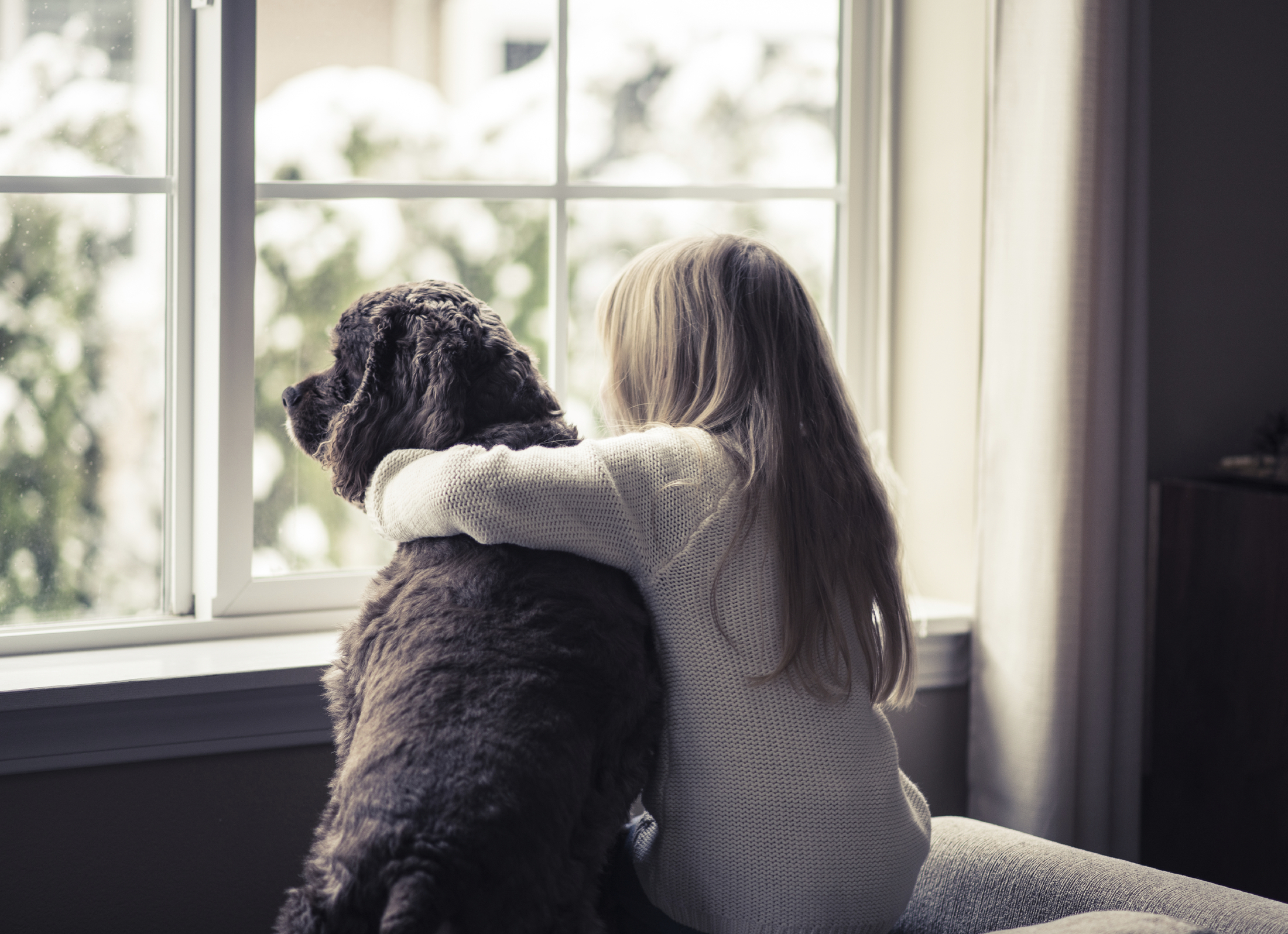
 During the winter, it is tempting to curl up and hibernate in bed for the next few months. However, you shouldn’t put off these important home maintenance duties.
During the winter, it is tempting to curl up and hibernate in bed for the next few months. However, you shouldn’t put off these important home maintenance duties.
Clean and check the gutters: While you are on the roof hanging holiday lights, make sure your gutters are clear of leaves, secured to the house, and in good condition. If you do find problem spots, seal, secure, and make note to fix these in the spring. You want to divert water away from your home.
Insulate external water sources: In cold climates pipes can freeze, which can then lead to cracked pipes and flooding. Bring hoses and sprinklers inside for the winter and use insulation to wrap external faucets. Insulating interior pipes can help prevent disaster. If you don’t have insulation, you can keep a faucet dripping during particularly cold days, so water is flowing through the pipes.
Check your water heater: One way to save money during the winter months is to wrap your water heater, so it doesn’t have to use as much energy to keep the water hot in a tank. You should check on your heater to make sure it isn’t leaking and in good repair regularly.
Interior insulation: Keep the heat in and the cold out with increased insulation in your attic and basement. This is an investment, and best done before the winter hits, but can make a big difference in how warm your house feels and how high your heating bill goes.
Check for cracks and leaks: Do you feel a draft? Check the sealing on your windows and doors. You can add weather stripping and silicon to seal these leaks. Foundations can leak as your home settles, so you should also check your basement for water coming through the walls, pipes, and older windows. You will want to seal these appropriately to minimize damage from flooding or mold.
Weatherize your windows: Your windows can be a great source of heat leakage depending on their age and condition. If you have older windows, you can use a clear film to help insulate them during the winter. If you don’t want to film the windows you can install extra thick drapes or curtains to help keep the interior of your home warm.
Check your heating system: What is one thing gas fireplaces, wood burning stoves, and central air heating systems all have in common? They all need to be cleaned and maintained. Check and clean your indoor heating system thoroughly. If you use an old-fashioned wood stove, make sure there are no leaks and that all soot buildup or nests are removed. If a furnace is what you have remember to change the filters as recommended or clean out your reusable filters.
Check your chimney with care: Nothing is as cozy as sitting by the fireplace during the winter, but use with care! Have your chimney checked by a professional to ensure that it’s in good condition and clear of critters or nests. You can also use a creosote log at the start of the season to help break down any old residue.
Invest in home security: The holidays are prime times for burglars looking to score some extra gifts so make sure your home is safe and secure at all times. Check your locks to make sure these are secure and consider a home security system with visible cameras to act as a deterrent. Keep evidence of big gifts hidden from view too. And make sure you discreetly get rid of any large boxes that might alert a prowler that you have new big-ticket items in your home.
Deck the halls and be merry: Decorate your home and prepare for guests. If you have a Christmas tree, keep it from drying out (and creating a fire hazard) by watering regularly. Keep decorative candles and menorahs away from children and flammable materials. You may want to consider battery powered candles, these can be a safe alternative to traditional candles.
Wishing you and yours a happy and safe holiday! For more information on Windermere Evergreen please contact us here.
Make Your Home Safe for the Holidays
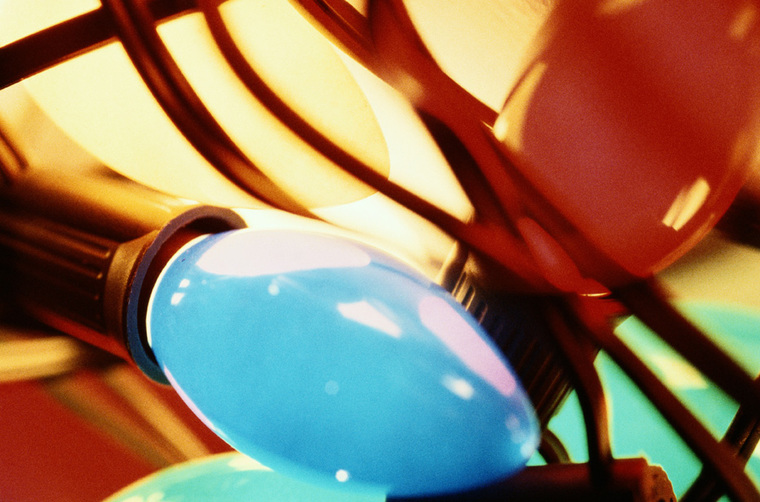

With all the cheer and celebration at this time of year, it’s hard to believe anything bad could happen. However, statistics show there’s a significant increase in home-related accidents, fires, and burglaries around the holidays. To protect your family, friends and property, heed these six suggestions:
- Keep walkways, driveways and decks free of slippery ice or moss.
- Have your fireplace professionally cleaned, and only use one artificial log at a time.
- Check the batteries in all smoke detectors and make sure a working fire extinguisher is located on every floor, as well as the kitchen and garage.
- Snuff out any candles before leaving the room (even for a short while), and make sure to always keep them in short holders with wide bases so they don’t fall over.
- For holiday lights: Only use outdoor lights / extension cords in the outdoors, and plug them into GFCI protected outlets; make sure all lights are UL-approved; know that the smaller bulbs are safer; never leave them on when you’re not home.
- Plug a few lamps and the TV or stereo into timers to make it appear someone is home while you’re away. Also, ask a neighbor to park their car in your driveway, pick up any mail and keep an eye out for any suspicious activity.
Making the extra effort to keep your home safe will always be the best gift you could give family, friends and other visitors. For more information on Windermere Evergreen please click here.
 Facebook
Facebook
 X
X
 Pinterest
Pinterest
 Copy Link
Copy Link
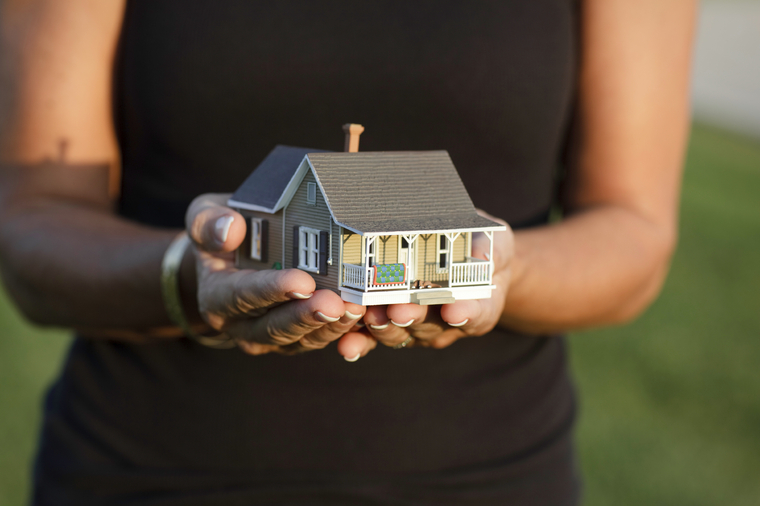
 Selling your home can be stressful for many reasons. Not only are you trying to get the best financial return on your investment, but you might also be working on a tight deadline. There’s also the pressure to keep your home clean and organized at all times for prospective buyers. One thing you can be sure of when selling your home is that there will be strangers entering your space, so it’s important for you and your agent to take certain safety precautions.
Selling your home can be stressful for many reasons. Not only are you trying to get the best financial return on your investment, but you might also be working on a tight deadline. There’s also the pressure to keep your home clean and organized at all times for prospective buyers. One thing you can be sure of when selling your home is that there will be strangers entering your space, so it’s important for you and your agent to take certain safety precautions.